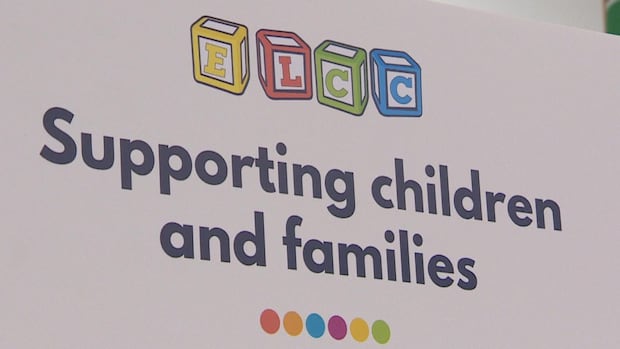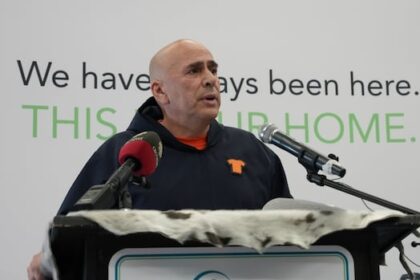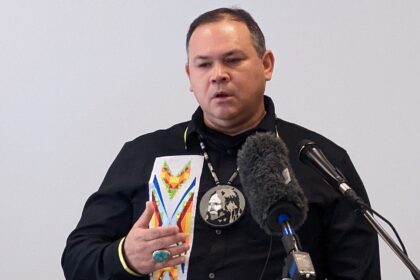SaskatchewanA total of 540 new child-care spaces will be on Saskatchewan Polytechnic campuses in Regina, Saskatoon, Prince Albert and Moose Jaw, as well as the Northlands College campus in La Ronge.450 spots split across 4 Sask. Polytechnic campuses, 90 at Northlands CollegeChris Edwards · CBC News · Posted: Aug 27, 2025 4:14 PM EDT | Last Updated: 1 hour agoA total of 540 new child-care spaces are being created across four Saskatchewan Polytechnic campuses in the province and the Northlands College campus in La Ronge. (Germaine Wilson/CBC)The provincial and federal governments are partnering to fund new child-care centres on post-secondary campuses in Saskatchewan.The initiative will invest $10.8 million to create 540 new child-care spaces — 450 spread across Saskatchewan Polytechnic campuses in Regina, Prince Albert, Moose Jaw and Saskatoon, and 90 at the Northlands College campus in La Ronge.”We’re working very hard as the provincial government to make sure that wherever we can, we can expand and create more child-care spaces across this province,” said Saskatchewan Education Minister Everett Hindley at the announcement Wednesday. “And this is a perfect fit.” The new spots are intended to provide on-campus child care for students and university staff, and serve as training sites for students studying early child education. Thirty per cent of the new spaces will be for “families facing barriers to access, including children with disabilities,” said a joint news release from the federal and provincial governments.”It is really important to recognize the safety net and support we offer families,” said Buckley Belanger, the MP for Desnethé-Missinippi-Churchill River and secretary of state for rural development. “Every family should have access to high-quality, affordable and inclusive child care, no matter where they live.”Renewing federal targetsThe project is part of the Saskatchewan government’s broader goal of lowering the cost of child care through partnering with the federal government. The federal funding is being provided through the federal early learning and child care infrastructure fund as part of an agreement made in 2021. That agreement aims to lower the cost of child care to an average of $10 a day by 2026.The agreement includes a pledge by the province to increase the number of licensed child-care spaces for children under six years old, reaching a coverage rate of 5.9 spaces for every 10 children by 2026. To reach that, the provincial government says it’s aiming to create 28,000 new spaces by 2026. Including this new investment, the province says more than 23,000 spaces are operational or in development. However, a study released this month by the Canadian Centre for Policy Alternatives said that only 5,648 of those new spaces are fully operational. The report also noted that more than half of Saskatchewan children still live in “child-care deserts,” where fewer than three child-care spaces are available for every 10 children. That is the highest proportion in Canada.The Canadian Union of Public Employees, which represents child-care workers in the province, criticized the announcement, citing the CCPA’s study.”Announcing spaces doesn’t mean families can actually access them,” said CUPE Saskatchewan president Kent Peterson.”So far, [Premier] Scott Moe and the Sask. Party have only made 20 per cent of their promised spaces operational since 2021. They need to stop dragging their feet, start delivering on their commitment, and sign a renewed child-care deal right now.”The agreement expires in March 2026. The Saskatchewan government has not renewed it, unlike most other provinces.”We’re waiting for that opportunity to sit down with the federal government,” said Hindley on the current status of negotiations. “We’re having some challenges trying to make the amount of funding we’re receiving now be spread out equitably.”Belanger is optimistic a new agreement will be worked out.”These discussions will continue over the next several months,” he said. “And I can assure you, by 2026, we’ll have a new agreement in place.” ABOUT THE AUTHORChris Edwards is a reporter at CBC Saskatchewan. Before entering journalism, he worked in the tech industry.
Provincial, federal governments fund 540 child-care spaces at Sask. post-secondary schools











